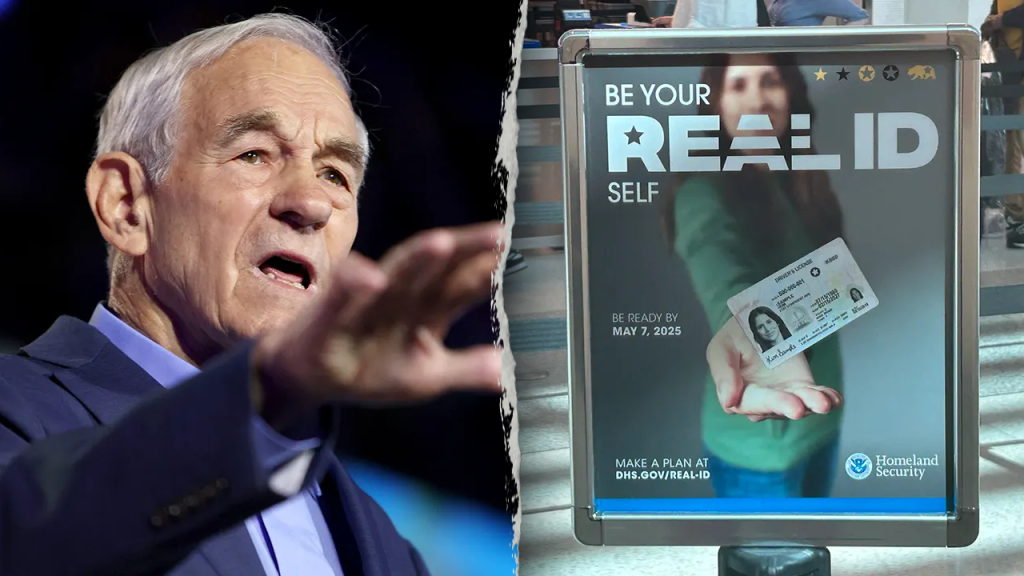As the deadline for obtaining a REAL ID approaches, shifting perspectives raise important questions regarding its implications for national security and civil liberties. Originally enacted in response to the September 11 attacks, the REAL ID Act mandates enhanced security features for identification documents used in federal contexts. While supporters argue it is a necessary measure for identification and security, critics warn of potential overreach and violations of personal freedoms. This article explores the ongoing debate surrounding the REAL ID policy, its history, and what individuals need to know moving forward.
| Article Subheadings |
|---|
| 1) Understanding REAL ID: Background and Purpose |
| 2) Advocates of REAL ID: Promoting National Security |
| 3) Concerns about Personal Liberty and Privacy |
| 4) The Implementation Challenges of REAL ID |
| 5) Future Considerations: What Citizens Should Know |
Understanding REAL ID: Background and Purpose
The REAL ID Act was instituted by Congress in 2005 as a response to the tragic September 11 attacks. The primary purpose of this initiative was to enhance the security of state-issued identification documents to prevent terrorism and other forms of illegal activity. The legislation established federal standards for producing identification that would be required for boarding commercial flights and accessing federal facilities, including courthouses and military bases. The law effectively mandates that states meet specific criteria regarding the security features of IDs, creating a uniform standard across the country…
Advocates of REAL ID: Promoting National Security
Supporters of the REAL ID movement, including several national security experts, argue that it enhances identification procedures to combat terrorism. Simon Hankinson, a senior fellow at the Heritage Foundation, notes that tightening ID requirements can significantly limit the ability of individuals with questionable documentation to travel freely within the country. They emphasize the examples from the 9/11 attacks, where several terrorists held valid state-issued IDs, highlighting vulnerabilities that REAL ID seeks to address…
Concerns about Personal Liberty and Privacy
Critics assert that REAL ID poses a substantial threat to personal liberties, likening the policy to a national ID system that could treat citizens as suspects rather than law-abiding individuals. Jim Harper, a senior fellow at the American Enterprise Institute, raises alarm about the potential for governmental overreach, reminding us of historical abuses associated with centralized identification systems. The argument is that by entering citizens into a national database, we create an environment where privacy is compromised, and collective judgment may overshadow individual rights…
The Implementation Challenges of REAL ID
Challenges surrounding the implementation of REAL ID have persisted since its inception, with multiple delays and extensions over the years. Originally slated for full implementation in 2008, various administrations have pushed the deadline forward, with the most recent cutoff set for May 7. Many states are struggling to meet these requirements, especially as they deal with additional complications like marriage name changes and differing state regulations. Public readiness is a key concern as governmental agencies gear up for enforcement, facing a populace that may not fully understand the implications of not having compliant documentation…
Future Considerations: What Citizens Should Know
As the deadline draws near, citizens are faced with questions about their options and the necessity of obtaining a REAL ID. While many will be required to comply for travel and access to federal facilities, there are still alternate forms of identification available for individuals who choose not to participate in the REAL ID system. It is crucial for citizens to weigh the benefits versus the potential drawbacks according to their personal circumstances. Ultimately, the choice of whether to obtain a REAL ID lies with the individual, and understanding the implications is vital…
| No. | Key Points |
|---|---|
| 1 | The REAL ID Act necessitates enhanced security features for state-issued IDs. |
| 2 | Supporters argue that REAL ID is essential for national security and controlling illegal activities. |
| 3 | Critics express concern over privacy violations and the treatment of citizens as potential criminals. |
| 4 | Challenges persist regarding the implementation and public readiness ahead of the May 7 deadline. |
| 5 | Citizens must weigh their options regarding REAL ID compliance based on personal circumstances. |
Summary
As the deadline for the REAL ID implementation approaches, the ongoing debate raises fundamental questions about security, privacy, and personal freedoms. Advocates for REAL ID see it as a necessary measure to bolster national security, while opponents argue it encroaches upon individual liberties and establishes a worrying precedent for government control. Citizens are encouraged to actively engage in this conversation, stay informed, and consider their options carefully as they navigate the complex implications of this policy.
Frequently Asked Questions
Question: What is REAL ID?
REAL ID is a federal law mandating that state-issued identification meet specific security standards.
Question: When is the deadline for obtaining a REAL ID?
The current deadline for obtaining a REAL ID is May 7, 2025, after which compliant identification will be necessary for specific federal purposes.
Question: How does REAL ID affect individual privacy?
Critics argue that REAL ID creates a national database that could compromise individual privacy and treat citizens as suspects.


